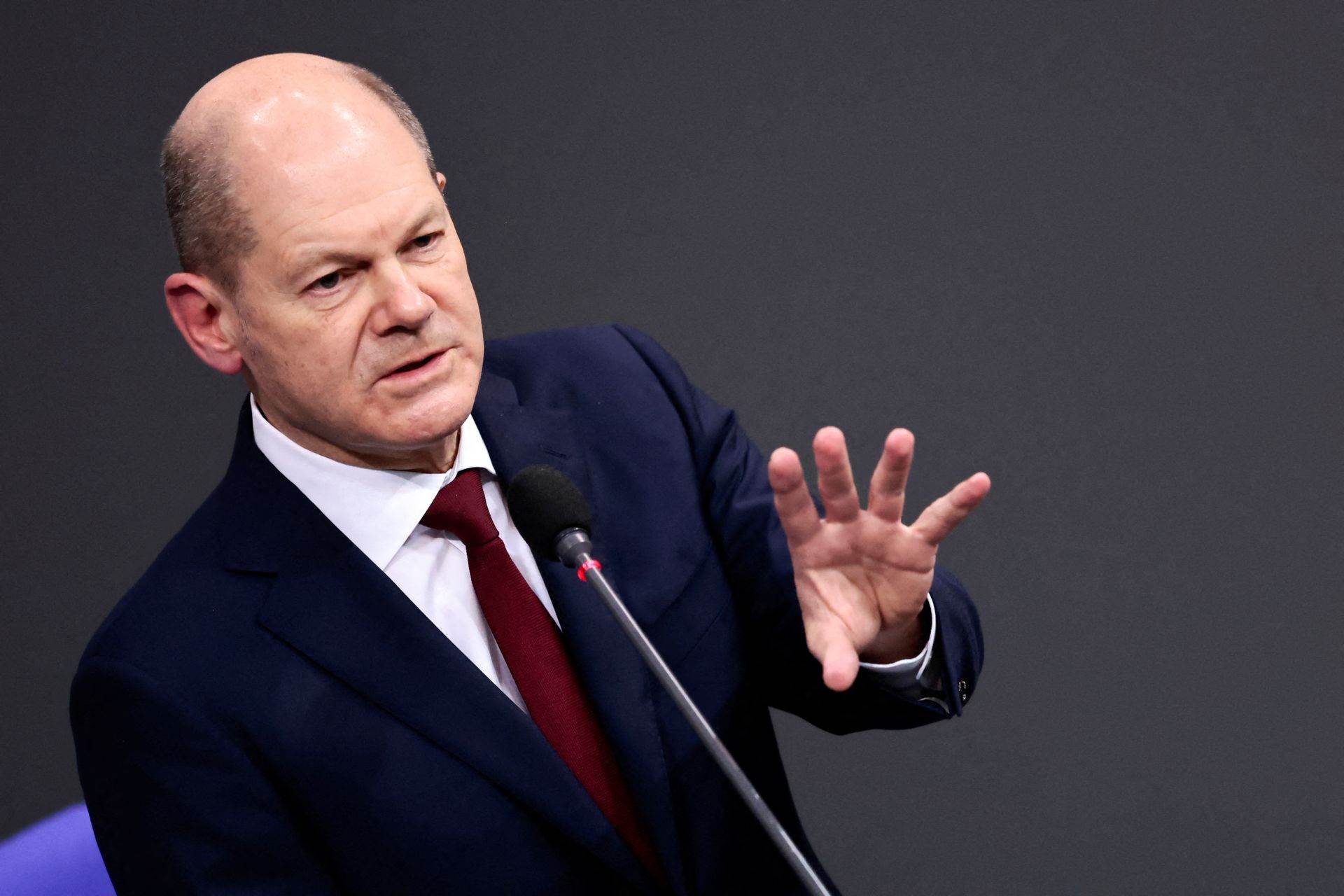Germany blocks Estonia from providing German weapons to Ukraine
After the US authorized the transfer of lethal weaponry to Ukraine, Estonia was blocked by Germany's non-supply of weapons to tense regions from delivering its arms to Kyiv.
-

German Chancellor Olaf Scholz speaks during his first questioning session with lawmakers at the lower house of parliament Bundestag in Berlin, Germany, January 12, 2022 (Reuters)
Germany is blocking its NATO ally Estonia from providing Ukraine with German-made military equipment in light of the latter's efforts to strengthen its armed forces against the backdrop of concerns over Russia, the Wall Street Journal reported Friday.
According to the report, German and Estonian officials said Berlin declined to approve expert permits allowing Estonia to transfer German lethal weapons and other military equipment to Ukraine.
Ukrainian Defense Minister Oleksiy Reznikov said Germany was very hesitant to deliver military support to Kyiv, which the report highlighted was due to Berlin's policy against delivering military support to tense regions.
Estonia is still trying to persuade Germany to approve the transfer to the eastern European country.
Other NATO allies have provided Kyiv with lethal weaponry including the United States, the United Kingdom, and Poland.
Germany upholding policy of non-supply of weapons to tense regions
The new government in Berlin is continuing to pursue the previous administration's policy on the non-supply of weapons to Ukraine, reaffirming its commitment to the idea, German Chancellor Olaf Scholz said.
"The federal government has a clear position on arms exports, position of continuity," Scholz said, explaining that it was the same position the government had pursued throughout recent years.
"We do not support the export of lethal weapons from Germany," Scholz told reporters following a cabinet meeting.
Berlin has been actively working toward a de-escalation of the situation around Ukraine, the chancellor highlighted, calling on Moscow to reduce its alleged military presence on the border.
He also expressed hope that security in Europe would be based on the principle of territorial integrity and inviolability of states' sovereignty in the future.
However, Scholz asserted that Germany was preparing to take appropriate measures in the event of a military escalation and if matters get to a conflict.
The Kremlin has denied the western allegations, demanding a written commitment that Ukraine would never be able to join NATO and that the alliance would not place any military equipment in certain countries in the region surrounding Russia.
Moscow sees that it is best for Russian security that the alliance does not expand eastward and that Russia does not have any Western military activity in its vicinity.
Some Background to the events
Mounting security concerns over Ukraine come as the West accuses Russia of planning an invasion of its western neighbor despite Moscow dismissing these allegations.
Russia insists that it has no intention of attacking any country, seeing the Western accusations as a pretext to deploy more NATO military equipment close to Russia's borders.
Estonia, Lithuania, and Latvia were awaiting US authorization to deliver American-made lethal weaponry to Ukraine in order to "deter" an alleged Russian invasion. Washington authorized them to supply Ukraine with arms, but Germany's decision seems to be unwavering.
The three Baltic nations were ready to supply weaponry to Ukraine, including anti-armor and ground-to-air missiles. All three states are NATO members who had backed increasing the alliance's presence in their territories.

 3 Min Read
3 Min Read










